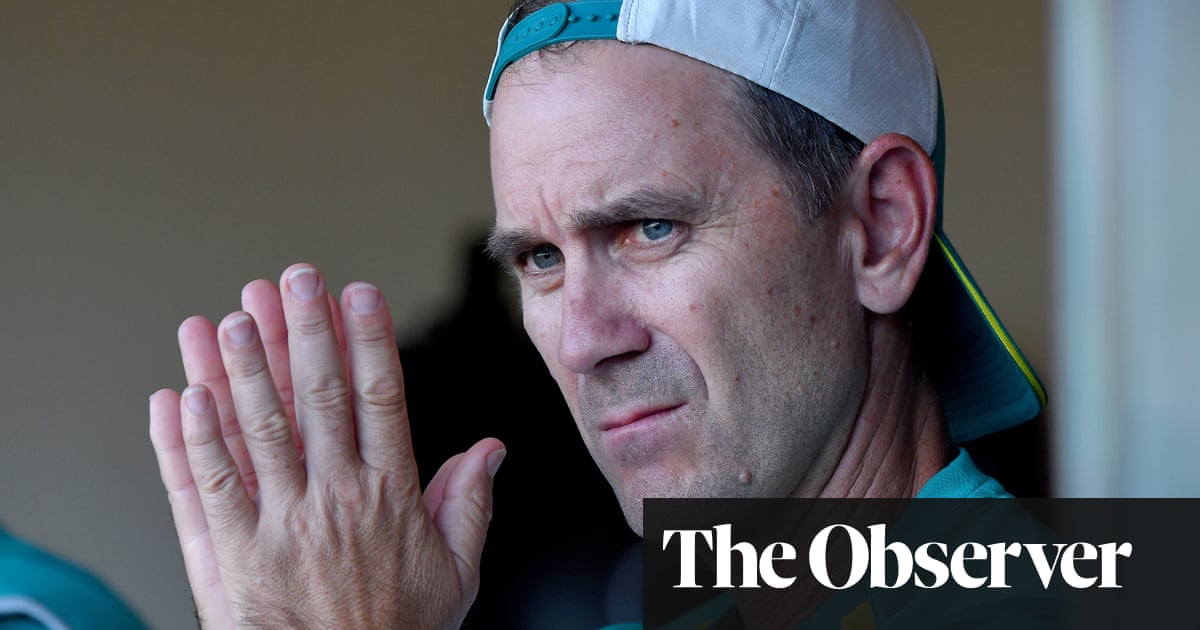Justin Langer in the frame for England coaching role after quitting Australia - 5 minutes read

All too aware of a desire within the dressing room he leaves, and offered only a short-term contract extension by a board that had put the pro in procrastination, Justin Langer quit as head coach of Australia on Saturday. The question now, after a week of bloodletting in English cricket, is whether one of the Baggy Green’s most devout acolytes will cross the Ashes divide.
And it will be asked. Andrew Strauss, England’s interim director of men’s cricket after Ashley Giles, Chris Silverwood and Graham Thorpe were sacked, is usually cautious when discussing recruitment. But at Lord’s on Friday he happily engaged with the subject of Langer’s candidacy, 24 hours before the decoupling from Cricket Australia was sealed, saying: “He will be one of the names [in the frame].”
Strauss is a longtime friend and admirer, writing in his 2013 autobiography that Langer was “one leader I consider myself very fortunate to have worked with” after their time at Middlesex. He also praised “a gritty little fighter” who, while “a little intense”, was “passionate, driven and hated the lazy, in-your-comfort-zone attitude displayed by so many county cricketers”.
Quite how England’s players would feel about this prospect is another matter. Hotels were shared throughout the Ashes, relations were cordial while a 4-0 pasting was being dispensed and the subject of Langer’s future was said to be a regular topic of chatter on the Australian side when he was not within earshot. By all accounts, little of it was positive nor hopeful of his contract being renewed.
Come the end of the series there was only one outcome. Three nights out from the fifth Test in Hobart a group that included the captain, Pat Cummins, David Warner, the assistant coaches, Michael Di Venuto and Andrew McDonald, plus other backroom staff members, met at a bar called The Den in Salamanca and discussed who they would like to replace Langer. As reported in the Guardian, a head coach like Trevor Bayliss, renowned for not sweating the small stuff, is the type of figurehead they are hoping for.
So if there is a belief from above that a cosy environment needs shaking out of its torpor – and Root requires a more hard-edged head coach alongside him – then Langer could fit the bill. Though the 51-year-old bleeds gold and green, Cricket Australia’s bungled handling of their team’s desire to move on – one that denied a great of their game a hero’s send-off – could work in England’s favour.
But then the permanent head coach is a few steps down the line for English cricket and only part of what is being described as the “red-ball reset”. Strauss must first install an interim head coach and convene a selection panel to pick a squad to face West Indies – a team that knows all about such existential crises but has lost one Test series at home to England in the past 54 years.
The new director of cricket will hire the new head coach (Strauss will be on the panel) and decide whether the task is now so all-consuming by way of headspace and fixture list that it needs to be split into separate Test and white-ball appointments. Certainly a return to having a national selector appears on the cards, Giles having described it as “antiquated” on sacking Ed Smith last April, only for Silverwood to struggle with the additional burden.
Once the setup is reconfigured and a path laid out, Strauss’s continuation in an advisory capacity is almost guaranteed and the former Test captain represents a life raft of proven cricketing competency for Tom Harrison to cling on to. The ECB chief executive is seven years deep with a waning mandate, no permanent chair above him, an independent board made up of corporates and a team beneath that has been over-stretched and distracted by the evangelical pursuit of the Hundred project.
After taking charge in 2015, Harrison has twice gone 12 months without deigning to speak to the media but over the past six – during the fires of the sport’s racism crisis and the meltdown of the flagship men’s Test team – he has been forced to become a regular in front of the dictaphones and cameras, not to the mention two chastening appearances in front of MPs in parliament.
Harrison, weeks away from his share of a £2.1m executive bonus scheme, has overseen the aggressive white-ballisation of English cricket but now states with certainty he is the right person to sort out the Test mess that resulted. It all sounds a bit Downing Street, as does talk of an independent review into the domestic game because if past such exercises are a guide, the ECB will cherrypick the conclusions.
Take the Schofield Report, commissioned after the 2006-07 Ashes whitewash. Among its 19 recommendations, it said domestic formats must mirror those played at international level, while the volume of cricket must be slimmed down at county level and for the national team in order to allow players to “prepare, perform, repair and regenerate”.
This does not quite tally with the subsequent expansion of the T20 Blast, the introduction of a fourth competition in the Hundred – a format not played anywhere else – nor that in 12 of the 15 calendar years since the report’s publication England men have played more than 40 international fixtures, having never done so previously.
Overseas development programmes, such as the placements in Australian grade cricket, were another suggestion, only for these to be slashed in recent times and the budget transferred to you know what. The report also called for improved development of English coaches but Strauss conceded that the search to find the right candidate(s) will have to be global again.
Source: The Guardian
Powered by NewsAPI.org